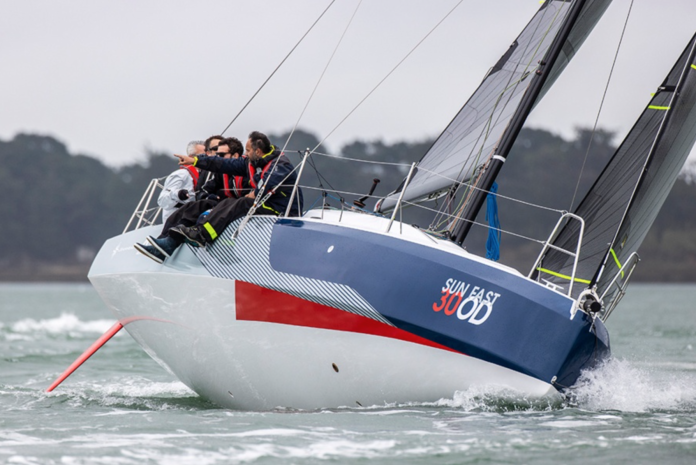Groupe Beneteau’s is set to see record full-year results for 2023 as it benefits from changes made over the last three years.
The Group says it has received a positive response to its new models at shows and despite the current economic situation, is still seeing a strong desire to spend time on the water.
The Group’s Boat division has seen 48% growth in the first half of the year, with operating income more than doubling.
And the effective management of inflation and the progress made with operational performance over the period contributed to a €17m improvement in profitability.

Weekly charter activities are now back up to levels of business that are higher than the pre-Covid period.
During the first half of 2023, the Group has continued to develop its B-Sustainable program and expanded its production line using an Elium recyclable resin (developed with Arkema) with the launch of a second model, the Sun Fast 30 OD, which has already recorded more than 40 orders.
The Group is aiming for a 30% reduction in CO2 emissions by 2030 and is carrying out an in-depth lifecycle analysis of its various boats as part of this strategy.
It is also extending the offer of alternative propulsion solutions adapted for each segment.
Operational performance
In view of its order book and its progress with operational performance levels over the first half of this year, the Group has confirmed its Boat division’s full-year revenue forecast for 2023, which is expected to reach €1,450m (+16% vs. 2022), and is also raising its operating margin forecast to 12% (vs. 11.5% previously).
For the Housing division, it is still forecasting full-year revenues of over €300m (over 16% growth vs. 2022), with an operating margin that could exceed 11% (vs. >10% previously).
Like-for-like, the Group expects to record full-year consolidated revenues of over €1,750m in 2023 (+16% vs. 2022 based on reported data), with income from ordinary operations to reach over €210m (vs. €200m previously).
However, there is a warning that certain distribution networks are expected to see a destocking in 2024, particularly those that are very active on small units.




